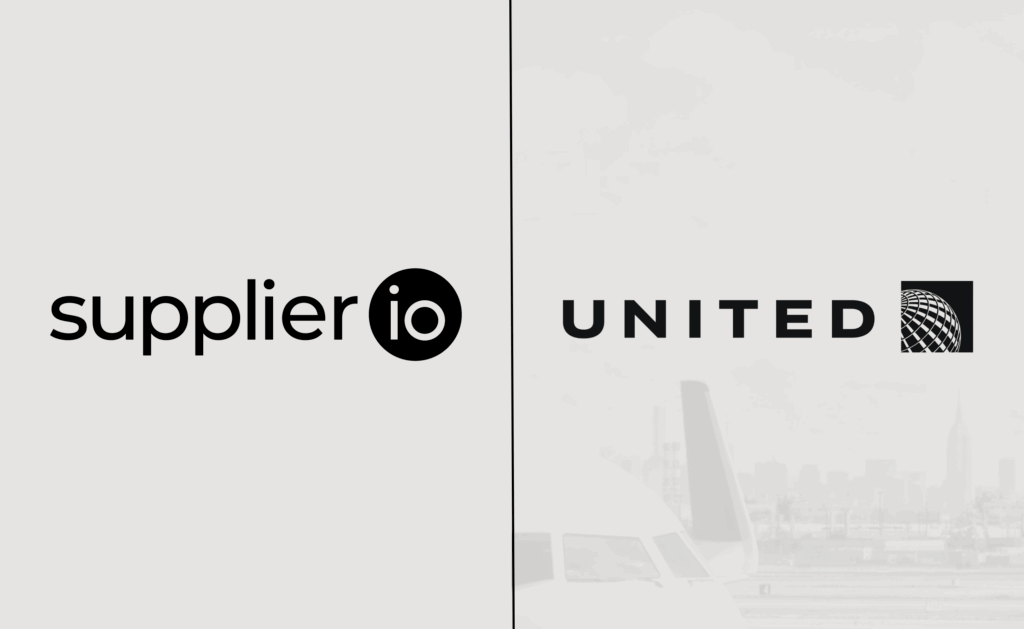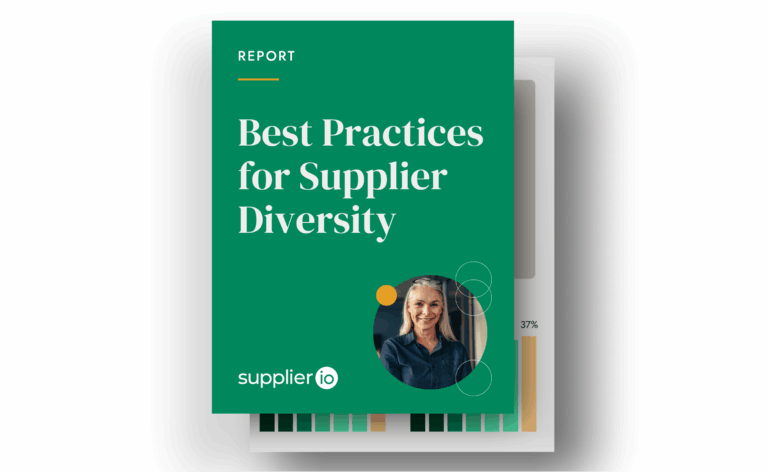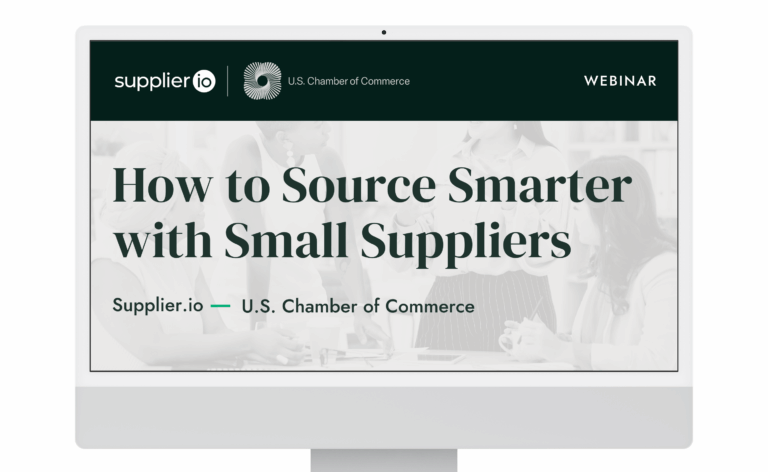Supplier Diversity Best Practices with United Airlines
Learn how United Airlines supplier diversity team adds business value, engages business leaders, and proves impact

In a recent Supplier.io webinar, Suzi Cabo, Managing Director of Business Diversity at United Airlines, shared invaluable insights on building successful supplier diversity programs. Businesses of any size can gain valuable insights from United Airlines’ nearly 60 years of experience.
Like many other companies, United Airlines recently hit the accelerator on their supplier diversity program. Over the last three years, it tripled its team size and increased diverse spend from $80 million to $500 million.
According to Suzi Cabo, Managing Director of Business Diversity at United Airlines, supplier diversity is no longer simply nice to have—it’s a must have. In this webinar, she shared several actionable tips for how businesses can begin accelerating their supplier diversity programs.
Prove supplier diversity value one win at a time
“Don’t start with the numbers. Start with the case studies,” Cabo said. When you get key stakeholders to understand the purpose and value behind supplier diversity through compelling stories, the numbers will naturally follow.
But what if you are only in the beginning stages of your supplier diversity journey? Cabo advised looking at one supplier and figuring out how to tell their story.
With that supplier in mind, answer the following questions to begin formulating the story:
- What value is this supplier delivering today?
- Are they bringing things to the table that other suppliers didn’t when they competed for that business?
- Is there an increase in sales or revenue from that supplier?
“We prove value one win at a time,” Cabo said. She emphasized several times throughout the webinar that this approach helps change mindsets and behavior, which has ultimately led to improved supplier diversity reporting and numbers at United.
Ensure accurate supplier data
Accurate data is the foundation of any successful supplier diversity program. If you’re part of a program that’s handling this manually, you’re likely working extremely hard to get results that may ultimately end up being inaccurate. In some cases, Supplier.io has found that manual supplier diversity reporting has results that are up to 50% inaccurate. This is one of the many reasons why United Airlines leverages Supplier.io’s best practice research and data to build their program.
“If you have some really talented data analysts, you could do it internally. Or you could work with wonderful partners like Supplier.io or others that can help with the economic impact report,” she explained. “Supplier.io helps us enrich our data so that we can get accurate dollars.”
Cabo highlighted that supplier diversity teams should look at the rate of inclusion and set targets around participation. They should also measure cost savings, cost avoidance, and contributions to GDP, jobs, and wages.
Showing economic and community impact
Cabo highlighted the significance of economic impact data in engaging various stakeholders. “The community cares about it. The business partners care about it. I know the suppliers care about it. United cares about it,” Cabo said.
Cabo also talked about how at the end of the day, an economic impact report tells you things like how many jobs were created because you and your company worked with a diverse set of suppliers. Metrics like contribution to GDP can be sliced and diced by region, allowing you to talk about your company’s impact on a market-by-market basis. She also shared that your company’s growth should be a catalyst for your suppliers’ growth.
Showing economic and community impact to leaders, executives, and the board is one of the most important things you can do to get them to care about supplier diversity. This data is also particularly valuable to government affairs teams, who are increasingly interested in the broader impact of diverse supply chains.
Conclusion
As companies continue to navigate increasingly complex industries, supplier diversity remains a vital component of a successful and sustainable business strategy. If you are in the early stages of your supplier diversity program and reporting, focus on changing behaviors and mindsets rather than immediately improving numbers. Start with existing diverse suppliers and build case studies around their value.
Consider a third-party like Supplier.io to ensure your program leverages accurate data, and engage your executives by highlighting the economic and community impact of your business whenever possible.
Ready to take your supplier diversity program to the next level? Visit Supplier.io to schedule a demo and discover how our data and insights can help you achieve your goals.




